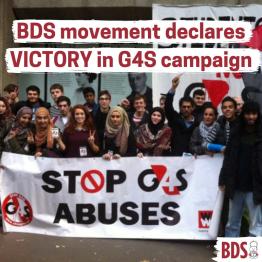“Boycott businesses that profit from Israeli settlements” – UN Special Rapporteur
NEW YORK (25 October 2012) – The United Nations Special Rapporteur on the situation of human rights in the occupied Palestinian territories, Richard Falk, today called on the UN General Assembly and civil society to take action against Israeli and international businesses that are profiting from Israeli settlements.
Highlighting the activities of Caterpillar Incorporated (USA); Veolia Environment (France); G4S (United Kingdom); The Dexia Group (Belgium); Ahava (Israel); the Volvo Group (Sweden); the Riwal Holding Group (the Netherlands); Elbit Systems (Israel); Hewlett Packard (USA); Mehadrin (Israel); Motorola (USA); Assa Abloy (Sweden); and Cemex (Mexico), Mr. Falk noted that a wide range of Israeli and international businesses are involved in the establishment and maintenance of Israeli settlements in the occupied Palestinian territory.
“All Israeli settlements in the West Bank, including East Jerusalem, have been established in clear violation of international law,” recalled the Special Rapporteur. “Yet today Israeli settlements control over 40 percent of the West Bank and between 500,000 and 600,000 Israeli citizens are living in Palestinian territory. In the last 12 months alone, the settler population has increased by over 15,000 persons.”
The Special Rapporteur drew the General Assembly’s attention to developing international law and standards concerning businesses and human rights, including the UN Global Compact and the UN Guiding Principles on Businesses and Human Rights.
“The principles outlined in the Global Compact are clear,” stated Mr. Falk. “Businesses should support and respect the protection of internationally proclaimed human rights and ensure that they are not complicit in human rights abuses.”
Mr. Falk also noted guidance developed by the International Committee of the Red Cross that points to the prospect of corporate and individual criminal responsibility for violations committed during a situation of armed conflict.
“In short, businesses should not breach international humanitarian law provisions. Nor should they be complicit in any breaches. If they do, they may be subject to criminal or civil liability. And this liability can be extended to individual employees of such businesses,” asserted the Special Rapporteur while presenting his report.*
“My main recommendation is that the businesses highlighted in the report – as well as the many other businesses that are profiting from the Israeli settlement enterprise – should be boycotted, until they bring their operations into line with international human rights and humanitarian law and standards,” Mr. Falk informed the General Assembly.
The Special Rapporteur further noted that he had written to all the businesses mentioned in his report, and that positive responses were received from Assa Abloy, The Dexia Group, G4S, and Cemex.
“It is encouraging to be informed that Assa Abloy has moved its Mul-T-Locks factory from the West Bank to Israel, and that The Dexia Group, G4S, and Cemex are looking for ways to bring their operations into line with their commitments under the UN Global Compact.”




